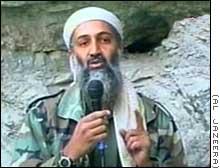Tuesday, February 26, 2008
Rule-based expert system may help forecast terrorist behavior and attacks

Posted by John Keller
News on the terror front comes today from University of Maryland, where researchers are using fundamentals of artificial intelligence to create an experimental rule-based expert system that may help U.S. authorities forecast potential terrorist attacks and terrorist behavior.
With funding from the U.S. Air Force Office of Scientific Research in Arlington, Va., scientists from the University of Maryland Institute for Advanced Computer Studies (UMIACS) created the SOMA Terror Organization Portal, otherwise known as STOP, which also may eventually help network anti-terrorism experts around the world who are analyzing terrorist information.
SOMA stands for stochastic opponent modeling agents, which is a logical-statistical reasoning framework that uses data about past terrorist group behavior to formulate rules about the probability of terrorist acts and behavior, according to an article at Physorg.com entitled STOP terrorism software. Writes Physorg.com:
Significantly, the STOP project enables users to mark rules as useful or not, and leave comments about the rules, which might be able to help refine the system organically over time.
This sounds like a great tool in the war on terror, but I continue to worry about an over-reliance on technology like artificial intelligence. It's no substitute for experts on the ground who can gather real intelligence.
Some of the rules in the STOP system simply have to involve how terrorists can exploit easily obtainable technology like cell phones, and how they can circumvent technology by passing notes or oral instructions hand to hand, and ear to ear.
No amount of high-tech remote sensing and rule-based expert systems on their own can effectively combat old-fashioned spycraft. It is this kind of solid intelligence information that comes the old-fashioned way that anti-terrorism experts living in a high-technology world historically have not been very good at.
Let's hope that new electronic technology like the STOP system can help experts understand not only the benefits of technology, but also its limitations.

Posted by John Keller
News on the terror front comes today from University of Maryland, where researchers are using fundamentals of artificial intelligence to create an experimental rule-based expert system that may help U.S. authorities forecast potential terrorist attacks and terrorist behavior.
With funding from the U.S. Air Force Office of Scientific Research in Arlington, Va., scientists from the University of Maryland Institute for Advanced Computer Studies (UMIACS) created the SOMA Terror Organization Portal, otherwise known as STOP, which also may eventually help network anti-terrorism experts around the world who are analyzing terrorist information.
SOMA stands for stochastic opponent modeling agents, which is a logical-statistical reasoning framework that uses data about past terrorist group behavior to formulate rules about the probability of terrorist acts and behavior, according to an article at Physorg.com entitled STOP terrorism software. Writes Physorg.com:
SOMA has generated tens of thousands of rules about the likely behavior of each of about 30 groups (including major terrorist organizations such as Hezbollah, Hamas, and Hezb-I-Islami). “SOMA is a significant joint computer science and social science achievement that will facilitate learning about and forecasting terrorist group behavior based on rigorous mathematical and computational models,” said V.S. Subrahmanian, computer science professor and UMIACS director who heads the STOP project.
Significantly, the STOP project enables users to mark rules as useful or not, and leave comments about the rules, which might be able to help refine the system organically over time.
This sounds like a great tool in the war on terror, but I continue to worry about an over-reliance on technology like artificial intelligence. It's no substitute for experts on the ground who can gather real intelligence.
Some of the rules in the STOP system simply have to involve how terrorists can exploit easily obtainable technology like cell phones, and how they can circumvent technology by passing notes or oral instructions hand to hand, and ear to ear.
No amount of high-tech remote sensing and rule-based expert systems on their own can effectively combat old-fashioned spycraft. It is this kind of solid intelligence information that comes the old-fashioned way that anti-terrorism experts living in a high-technology world historically have not been very good at.
Let's hope that new electronic technology like the STOP system can help experts understand not only the benefits of technology, but also its limitations.
